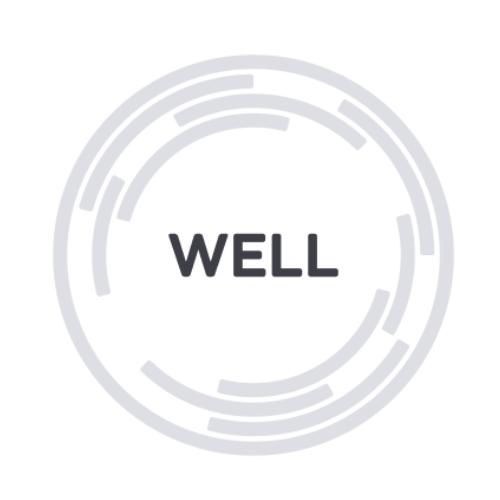WELL Certificate
WELL Certificate
WELL Building Standard™ is an evaluation standard that focuses on improving the quality of the internal environment of buildings and promoting the health and well-being of residents. This standard was first launched by the International WELL Building Institute (IWBI) in 2014 with the purpose of improving buildings through design and operation. , thereby improving the health and efficiency of users. IWBI (International WELL Building Institute) is an organization headquartered in the United States. The association was established in 2013 and is committed to promoting the WELL Building Standard™, aiming to improve the health and well-being of buildings. . Although it is based in the United States, IWBI's influence has expanded globally, with many countries and regions adopting WELL standards to improve the built environment.
The origins of the WELL standard can be traced back to the increasing emphasis on the relationship between environment and health. As urbanization accelerates, more and more people spend most of their time in indoor environments. Therefore, the quality of these environments directly affects The physical and mental health of residents. IWBI was founded to promote a new architectural philosophy that emphasizes the importance of health and well-being in design.
Initially, the development of the WELL standards relied on scientific research and expert consultation, covering multiple health and well-being topics such as ventilation, light, sound, drinking water quality, etc. After years of revision and improvement, the WELL standard has gradually formed a complete evaluation system and has gained widespread recognition around the world.
The WELL Building Standard™ assessment methodology is based on a series of specific indicators, which are divided into seven core concepts, namely:
1. Air: Evaluate indoor air quality, including ventilation systems, air filtration technology, etc.
2. Water: ensuring the quality and accessibility of drinking water and promoting healthy water use.
3. Nutrition: Encourage healthy eating choices and promote healthy eating-related habits.
4. Light: Consider the introduction of natural light and the design of artificial lighting to improve the physical and mental health of residents.
5. Fitness: Promote daily exercise, including encouraging walking, providing fitness facilities, etc.
6. Mind: Pay attention to mental health and provide a quiet environment and a space to reduce stress.
7. Community: Improve community interaction and support systems and promote social connections.
Each core concept is subdivided into specific strategies and measures that can be adapted to the type of building and the needs of its users. The evaluation mechanism includes inspections of building design, building materials, operation management and other aspects to ensure that it meets the requirements of the WELL standard.
The certification process of the WELL Building Standard includes three main stages: application, evaluation and certificate issuance. Building owners need to submit relevant documents and data, and IWBI will review them and assign corresponding certification levels based on the evaluation results. WELL certification is divided into three levels: baseline, silver and gold, with the final level determined based on the building's healthy design and operation practices.
We at HK Energy Audit can assist you in applying for a WELL Certificate for your target building or decoration design. Our WELL Accredited Professional will follow up to evaluate and ensure that the applicant can successfully obtain the target level of WELL Certificate certification.
As people pay more and more attention to healthy living, WELL Building Standard™ has been rapidly promoted around the world. Many well-known international companies and organizations have begun to apply WELL standards to their new construction or renovation projects, hoping to improve employee productivity and overall satisfaction. In addition, the successful implementation of the WELL standard has also promoted the development of other related standards, such as LEED (Leadership in Energy and Environmental Design), etc. These standards jointly promote the process of green building and sustainable development.
As an innovative building assessment standard, WELL Building Standard™ provides a new perspective on building design and operation, emphasizing the importance of health and well-being in urban life. As more and more buildings move toward WELL standards, we expect future urban environments to better serve human health needs and create more sustainable living spaces.

If you have any questions, please feel free to whatsapp us
Blog article
View all-

【甚麼是註冊專業工程師?與特許工程師有甚麼分別?】
註冊專業工程師(Registered Professional Engineer, R.P.E) 身份資格由香港工程師註冊局根據《工程師註冊條例》頒發,代表該工程師透過嚴格審核,並具備專業知識、經驗,並獲得香港政府認可,可以執行與安全、技術有關的工程項目及簽署相關文件;特許工程師(Chartered Engineer) 身份資格由工程學會頌發,同時亦可晉身該工程學會會員,或透過互認獲取更多不同學會的會員身份,特許工程師同樣是一種專業認可,包括該工程師在工程技術、管理能力同職業操守方面等,而且可以擔任高級技術或管理職位,特許工程師的國際認可性高,兩者有甚麼分別?
【甚麼是註冊專業工程師?與特許工程師有甚麼分別?】
註冊專業工程師(Registered Professional Engineer, R.P.E) 身份資格由香港工程師註冊局根據《工程師註冊條例》頒發,代表該工程師透過嚴格審核,並具備專業知識、經驗,並獲得香港政府認可,可以執行與安全、技術有關的工程項目及簽署相關文件;特許工程師(Chartered Engineer) 身份資格由工程學會頌發,同時亦可晉身該工程學會會員,或透過互認獲取更多不同學會的會員身份,特許工程師同樣是一種專業認可,包括該工程師在工程技術、管理能力同職業操守方面等,而且可以擔任高級技術或管理職位,特許工程師的國際認可性高,兩者有甚麼分別?
-

Three types of professionals provide accredited...
The "Buildings Energy Efficiency (Amendment) Bill 2025" passed its third reading in the Legislative Council in 2025. The revised Buildings Energy Efficiency Ordinance has several key features, including the inclusion...
Three types of professionals provide accredited...
The "Buildings Energy Efficiency (Amendment) Bill 2025" passed its third reading in the Legislative Council in 2025. The revised Buildings Energy Efficiency Ordinance has several key features, including the inclusion...
-

[Chartered Engineer One-on-One Course]
Most high-tech and management-level engineering positions in Hong Kong, or those requiring independent design, project leadership, and innovative solutions, typically require applicants to hold a Chartered Engineer (CE) qualification. HKEA...
[Chartered Engineer One-on-One Course]
Most high-tech and management-level engineering positions in Hong Kong, or those requiring independent design, project leadership, and innovative solutions, typically require applicants to hold a Chartered Engineer (CE) qualification. HKEA...




